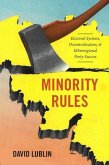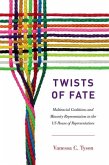The question of minority rights is one of the great dilemmas of contemporary politics. Increases in the flow of immigrants, migrants and refugees have raised public concerns that greater cultural and ethnic diversity creates instability within nation-states. But does stability really require homogeneity? Or can it be maintained in the presence of different minority groups? In this path-breaking book, Jackson Preece analyses whether traditional minority rights theory is sufficiently dynamic to inform effective responses to modern challenges. The central premise behind minority rights is that groups recognized and supported by the political community are far less likely to challenge its authority or threaten its territorial integrity. However, as Jackson Preece shows, the potential for collisions of values and interests still exists, and the possibility of a permanent solution to the problem of diversity remains illusive. Minority Rights will be an indispensable resource for students and scholars of political science, international relations, law, and sociology.
'This is an important book. At a time when western societies arebecoming increasingly polarised between those who urge the virtuesof milticulturalism and those who fear that our values are beingundermined and our security threatened by the presence ofminorities, we badly need a careful and clear-headed appraisal ofminority rights and the dilemmas that they pose. Jennifer JacksonPreece is to be congratulated on providing us with just such anaccount.'
James Mayall, University of Cambridge
James Mayall, University of Cambridge








